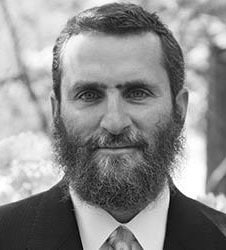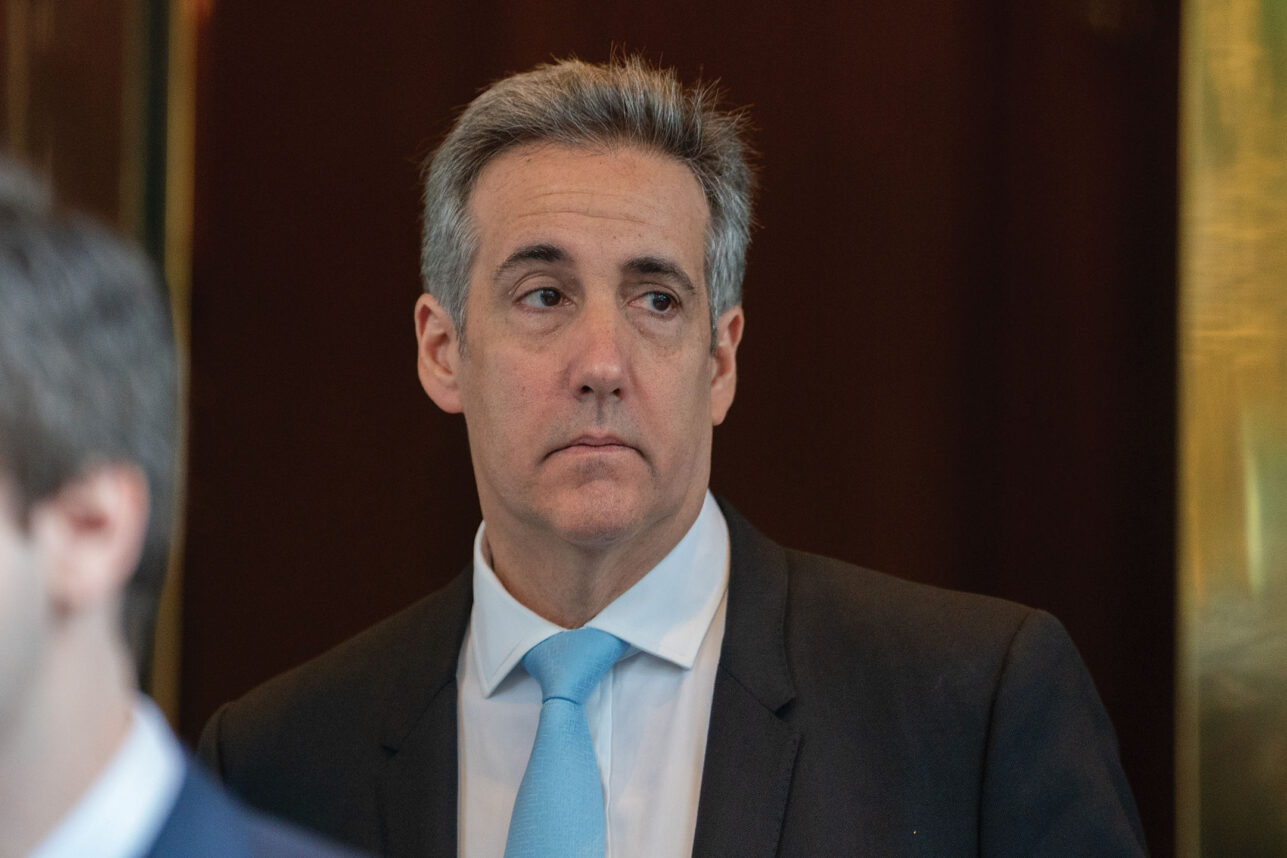 Newark Mayor Cory Booker announces his plans to run for the U.S. Senate seat during a news conference in Newark, June 8, 2013. REUTERS/Eduardo Munoz
Newark Mayor Cory Booker announces his plans to run for the U.S. Senate seat during a news conference in Newark, June 8, 2013. REUTERS/Eduardo Munoz The death of former President George H.W. Bush brought Mikhail Gorbachev back into the news. The great former Soviet leader, who deserves immeasurable credit for not sending in the tanks and crushing his people when the Soviet Union collapsed, was commenting about Bush and the work they did together to end the Cold War.
It brought back a reverie of memories. In the winter of 1993, I hosted Gorbachev at the University of Oxford. We had hosted many former presidents and prime ministers who had left their posts. But he was the first former president whose country had left him, ceasing to exist.
It was Hanukkah, the Jewish Festival of Lights. Introducing Gorbachev to the thousands of Oxford students who came to hear him were me and my two Oxford L’Chaim Society student presidents: Toba Friedman, Oxford’s first female orthodox Marshall Scholar, and Cory Booker, an African-American Rhodes scholar who had become my closest friend.
By now, our story is well-known.
Booker and I studied Torah together, and the concepts we learned have become central themes in many of his speeches, from the need to go beyond tolerance to the idea of mutuality and the interdependency of communities.
But then came the Iran nuclear agreement and Booker’s support of it and the beginning of a downward spiral in his support for Israel that undermined much of our friendship and the Jewish community’s admiration for him. Nearly every time I attend a public event, people will walk over to me and ask, “Why did Cory oppose the Taylor Force Act, which stops the funding of Palestinian terrorists, in Senate committee?” “Why did Cory condemn the moving of the American Embassy to Jerusalem?” And, “Why did Cory take a picture with boycott, divestment and sanctions leaders, who demand the removal of Israel’s wall that prevents suicide bombings?”
Most of the time, the questions come in an ominous, accusatory tone, as if to say that I’m responsible for Booker’s actions because I brought him to the Jewish community and introduced him at synagogues for more than two decades.
But there we were during Hanukkah, 25 years later, and Booker was speaking at “Never Is Now,” the Anti-Defamation League’s National Summit on Anti-Semitism and Hate in New York City, where he said this:
“If you love someone, it’s not enough to sit back and watch and be a bystander. Love means that you have to be actively engaged in the affirmation of human dignity for all people. Love says, ‘It’s not enough to say, “I’m not racist.” ’ You have to be anti-racism. It’s not enough to say that ‘I’m not anti-Semitic.’ You must be anti-anti-Semitism .… We must stand up for each other and say that bigotry has no place, that anti-Semitism has no place.”
A better summary of what harmed Booker’s relationship with the Jewish community in general, and me, in particular, could not have been better articulated. And a better path for Booker to return to his convictions, amid his political ambitions, could not have been more eloquently offered.
Cory Booker, if you’re a United States senator from New Jersey, and have a huge Jewish constituency, and the Iranians are threatening to kill the Jews, you have to speak out. You have to condemn their anti-Semitism. You have a perch at the United States Senate. You have to go to the podium and say, “Look, whether I support the Iran nuclear deal is beside the point. I condemn in the strongest possible terms Iran describing the Jews as a cancer that must be eradicated.” And Sen. Booker, now that “moderate” Iranian President Hassan Rouhani recently also called Israel a cancer, just like Mahmoud Ahmadinejad before him, it’s not too late for you to live up to your own words and condemn such wretched anti-Semitism.
And when Nation of Islam leader Louis Farrakhan get us up and says that Jews are termites — and we all know what you do with termites — then Sen. Booker, “It’s not enough to sit back and watch and be a bystander. … It’s not enough to say, ‘I’m not racist.’ You must be anti-anti-Semitism. … We must stand up for each other and say that bigotry has no place, that anti-Semitism has no place.” So why didn’t you condemn Farrakhan?
And since you were saying all this at the premier anti-Semitism fighting organization in America — which CEO Jonathan Greenblatt has brought to new heights — why didn’t you do it right then and there?
The confusion about my 25-year relationship with Booker is this: We studied Torah together for hundreds — perhaps thousands — of hours. He came to my home for perhaps hundreds of Friday night Shabbat dinners. We loved each other like brothers. And the Jewish community was inspired by our friendship, his beautiful speeches about the parsha of the week, and our visits to Israel, and the community made him one of the single biggest recipients of Jewish political contributions in American history.
So why the silence when the Jews are imperiled?
Torah is sacred. It had to change me and Booker. It certainly changed the Rev. Martin Luther King, whose drawing on the beautiful themes of the Hebrew Bible made him the greatest American of the 20th century. King transformed the Torah into a liberation manifesto that powered the civil rights movement.
About 15 years ago, when visiting Memphis, Tenn., and the Lorraine Motel with my children, at the site where King was assassinated 50 years ago this past April, I called Booker and told him, “You have to see how beautiful the marble slab is which was placed right near where King died and the beautiful quote from the story of Joseph.” It’s appears in last week’s Torah where Joseph’s brothers attempt to kill him. Booker quotes the story in a Facebook post of December, 2014: “THEY SAID TO ONE ANOTHER, BEHOLD, HERE COMETH THE DREAMER … LET US SLAY HIM … AND WE SHALL SEE WHAT BECOMES OF HIS DREAMS.” Joseph’s brothers hated his visions. So they threw him in a pit and tried to murder him.
King was the same. He dreamed a dream that racists hated. So they murdered him. But, ultimately, his dream won out among all people of fairness and decency and, while America still has a long way to go to purge itself of racism, King is universally admired as a modern prophet who gave his life so that America would no longer practice institutionalized racism.
Now there is talk that Booker is considering running for president. Twenty-five years ago, I began to tell him over and over again that I believed that one day he would be president. He had the charisma, the learning, the resume, and the goodness to rise to America’s highest office.
But now there is one catch. Americans have become tired of politicians. Donald Trump won the election because he was the straight-talking, anti-Clinton-politician-for-life model. And even people who despise Trump despise politicians even more.
If Booker is to be a serious candidate for the nation’s highest office, he has to return to his roots and reclaim his convictions.
It may not be popular to stand up for Israel in some quarters of American politics but it’s what Booker believes, so he must do it.
And it may not be popular to buck your party on legitimizing Iran while it calls for Israel’s annihilation. But New Jersey’s senior senator, Bob Menendez, did it. So Booker can, too.
And learning Torah and reciting it for Jewish audiences — along with the Hebrew phrases that I taught him — comes with the strong obligation not just to inspire audiences but to live by the Torah’s demands, to “act justly and to love mercy and to walk humbly with your God” (Micah 6:8) and, as King repeatedly said, “to let justice roll down as waters, and righteousness as a mighty stream” (Amos 5:24).
Rabbi Shmuley Boteach is the international best-selling author of 30 books, including his most recent, “The Israel Warrior.”























 More news and opinions than at a Shabbat dinner, right in your inbox.
More news and opinions than at a Shabbat dinner, right in your inbox.